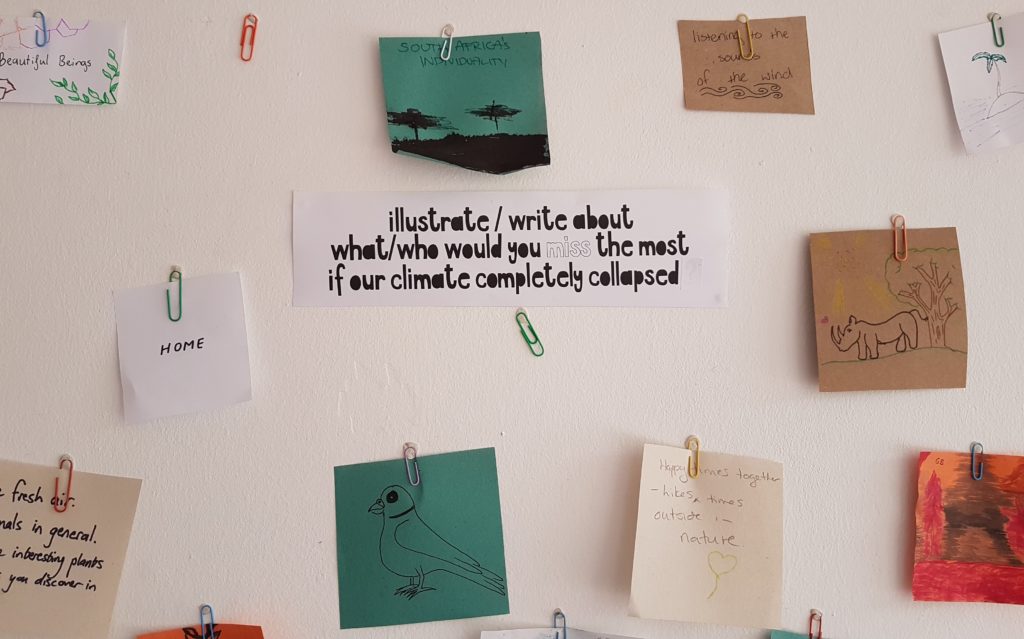Rückschlag für den Klimaschutz: Wandel der Einstellungen und Kommunikation zu Klimawandel und Klimapolitik von 2015 bis 2023

In ihrem Artikel „Rückschlag für den Klimaschutz“ veröffentlichten Anne Reif, Lars Guenther, Robin Tschötschel und Michael Brüggemann erstmals die aktuellen Langzeittrends zur klimawandelbezogenen Mediennutzung und klimafreundlichen Einstellungen während fünf UN-Klimagipfeln (2015-2023) in einem Zeitschriftenaufsatz. Zum ersten Mal deuten die Umfragedaten auf einen Rückschlag für den Klimaschutz hin. Es zeigen sich unterschiedliche Zusammenhänge zwischen Mediennutzung und […]
Rezension: “Klimaschutz ist Menschenschutz” – Wirksame Medizin gegen Ratlosigkeit in Klimafragen

“Man wird Dinge niemals verändern, wenn man gegen die existierende Realität ankämpft.“ So beginnt ein Zitat von Buckminster Fuller, einem US-amerikanischen Architekten und Philosophen. Das vollständige Zitat steht aber auch am Anfang des Buches ‘Klimaschutz ist Menschenschutz’ vom Journalisten und Kommunikationsexperten Michael Adler, das 2022 im Verlag oekom erschienen ist. Und Fullers Aussage trifft den […]
Rezension: “Sprache der Zuversicht” – Eine andere Welt ist möglich

Ulrich Grober möchte mit seinem neuen Buch “Sprache der Zuversicht” der Resignation der aktuellen krisenhaften Zeiten die Stirn bieten. Zu diesem Zweck begibt er sich auf eine akribische Recherche nach Wortherkünften und ursprünglichen Begriffsbedeutungen. Er zeigt, wie wir sprachliche Tools einsetzen können, um an der Konstruktion einer besseren Welt mitzuwirken. Another World Is Possible – […]
“Cranky Uncle” – A Game Against Denial

One big question for climate change communication is how to deal with deniers and stop misinformation from spreading. A smartphone game called “Cranky Uncle” teaches players common techniques of denial, such as ‘cherry picking’, logical fallacies, and conspiracy theories. What looks like a funny diversion is actually built upon a scientific theory and developed by […]
Why Don’t We Act Now? The discrepancy between climate change awareness and action

The 6th IPCC Report of Working Group 3 was published just about two months ago, on April 4, and stated once more and in further detail the urgency to mitigate climate change. As known, the Intergovernmental Panel on Climate Change (IPCC) consists of politicians and scientist of the United Nation, grouped in three working groups […]
A Short Personal Guide to Climate Change Conversations

As natural scientists, we hopefully learn multiple concepts about uncertainty throughout our education and research, and, at some point, the time will come when we need to put them into practice. This post comes from the necessity of a first approach to assemble some of the multiple guidelines and recommendations that we receive regarding climate […]
What would you miss the most?

Interactive visual arts project on climate change consequences During my research stay in Stellenbosch, South Africa, I came across an interesting arts project on climate change, which was installed during the cultural festival “Woordfees”. A note on the wall invites onlookers to participate: to illustrate or write about what or who they would miss the […]
“The Kids Are All Right – Adults Are the Climate Change Problem” by Max Boykoff

There is an interesting new comment by Prof. Max Boykoff on our partner blog from the Center for Science and Technology Policy Research in Boulder, Colorado/USA. He describes how older adults try to diminish climate engagement promoted by young activists – and calls for more support: “Trust in this next generation of leaders”. Read […]
First results of our new survey

During the first week of the recent COP 24 in Katowice/Poland, we reran our survey from 2015 and questioned a sample of German nationals about their climate change knowledge and attitudes. The German newspaper DIE ZEIT published an article about our first results – here is a summary for our English speaking readers:
A change in mind (Photo journalism project as a support for #EarthToParis)

“How can contemporary image makers promote new thinking and make a difference in the world?” (Fred Ritchin, Bending the frame) Since the first day in my photo journalism class, taught by Sarah Schorr at Aarhus University, Ritchin’s quote has not lost its grip on me. How can a single photo in today’s digital media flow, […]
